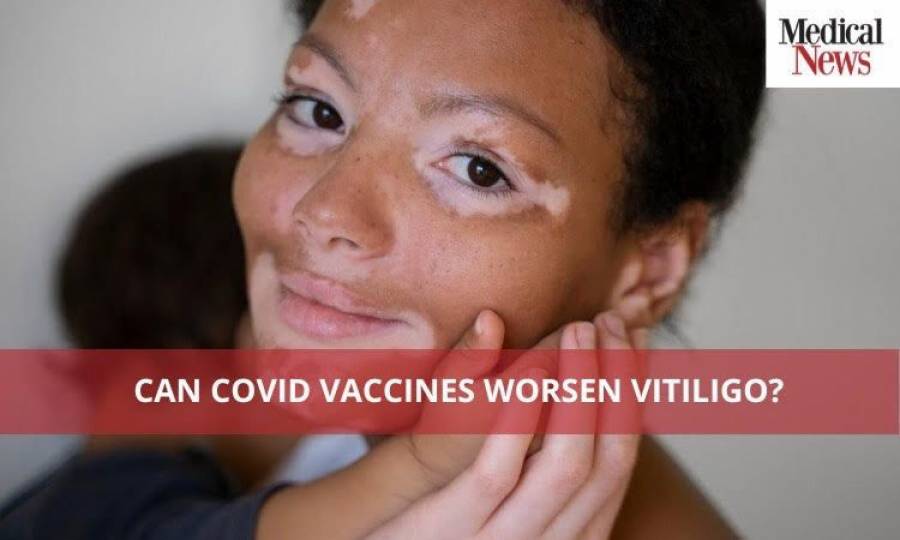Can COVID Vaccines Worsen Vitiligo?

Recent research suggests that COVID-19 vaccines may be related to the onset or worsening of vitiligo. Vitiligo is an autoimmune condition in which patches of skin lose their colour, partially or completely, due to the loss of melanin- the pigment in the skin.
COVID-19 vaccines have been recommended by governments across the world due to their effectiveness in preventing and minimizing symptoms of the diseases. Although, Covid vaccines have side effects and can worsen certain conditions like vitiligo.
How Covid-19 Vaccines Work
Recommended vaccines include Pfizer-BioNTech, Moderna, and Johnson and Johnson’s Jansen.
Pfizer and Moderna are messenger RNA (mRNA) vaccines which utilize artificial genetic material. mRNA is a genetic material which encodes for proteins that cause an immune reaction, resulting in the formation of antibodies. These antibodies fight off the virus that causes COVID-19 if the person is exposed to it.
On the other hand, the Janssen vaccine utilizes a vector system. It introduces a harmless artificial virus, known as a vector virus, into the body. The virus directs cells to formulate a new protein, which causes an immune response and leads to the production of antibodies.
Onset of Vitiligo by COVID-19 Vaccines
In rare incidents, covid-19 vaccines have brought about the onset of vitiligo in certain people. It has been proposed that this is due to new immune cells attacking melanocytes- the cells responsible for pigmentation. Different vaccines have caused the onset of vitiligo across varying age brackets, especially in those with a family history of the condition.
Aggravation of Vitiligo by COVID-19 Vaccines
While it is rare, COVID-19 vaccines have worsened vitiligo in some cases. There have been reports of people’s vitiligo patches worsening after the vaccination. Other diseases, like lichen planus, have also been linked to it. These have been linked to the body’s immune reaction in response to the vaccine. There is a need for further studies and investigations to determine the logic behind these rare cases.
Vitiligo Symptoms
Common symptoms include:
● Milky-white skin patches on the face, hands, arms, and feet
● Colour loss inside the mouth or nose
● White hair
Less common symptoms include:
● Swelling or inflammation in the eyes or ears
● Total pigment loss in all skin cells
Possible Side-effects of COVID-19 Vaccine
Common ones include:
● Inflammation around the vaccination site
● Tiredness
● Nausea
● Fever or chills
● Muscle soreness
● Headaches
Rare ones include:
● Anaphylaxis
● Blood clots
● Myocarditis
Treatment
Vitiligo cannot be completely cured but can be managed. People should refer to a dermatologist to find the best possible treatment options for their cases. The options may include topical or oral medications, laser treatments or dietary changes.
Conclusion
COVID-19 has proven to be effective in the prevention of the disease and also in minimizing its effects on the body. In rare circumstances, it can lead to the onset or worsening of vitiligo. Further investigations are required to understand the logic behind it and determine risk factors. While vitiligo cannot be completely cured, treatment options are available for its management.
Advertisement
Trending
Popular
Hair loss: Discovery uncovers key stem cells that could reverse ...
-
Broccoli sprout compound may help lower ...
11:31 AM, 25 Feb, 2025 -
Gas Pain vs. Heart Attack: How to tell ...
09:00 PM, 22 Feb, 2025 -
Coconut oil supplement shows promise ...
08:00 PM, 20 Feb, 2025 -
Normal vitamin B12 levels may still ...
05:00 PM, 19 Feb, 2025



